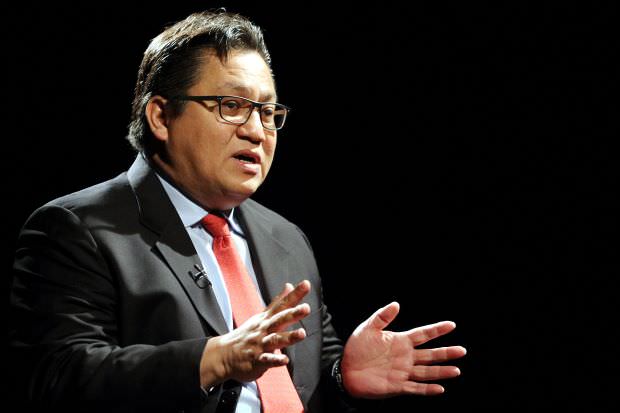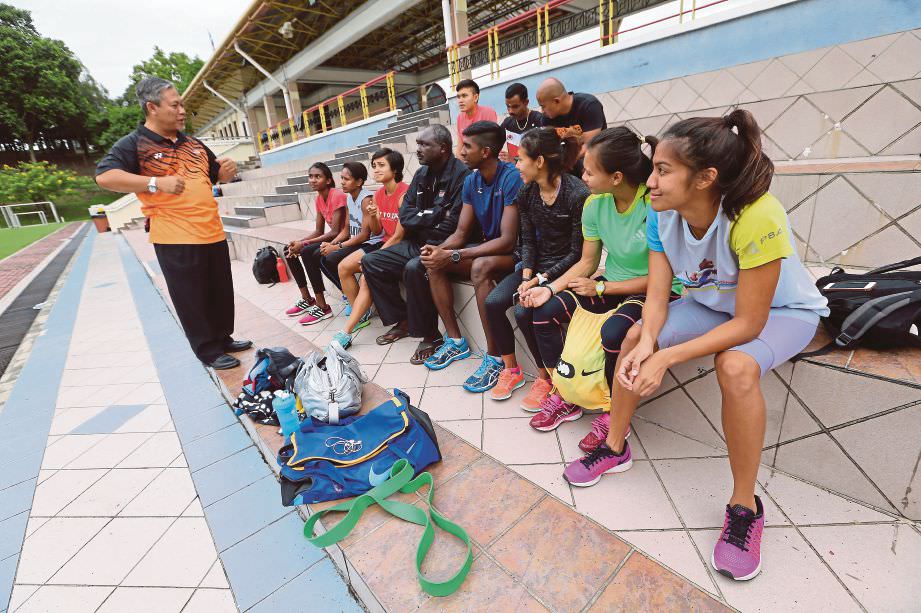ONE of the biggest challenges facing the Government at this moment is security, especially the terrorist threat.
Police confirmed that the Islamic State had in June executed its first attack on Malaysian soil at the Movida club in Puchong, Selangor, that resulted in several people being injured.
In an interview with Sunday Star, Deputy Home Minister Datuk Nur Jazlan Mohamed – who was appointed to the position one year ago – speaks about the terror threat, security issues and the challenges in facing them; he also speaks about the passport problem that has been plaguing the Immigration Department recently.
How would you describe the terrorist threat in Malaysia?
At the moment, the level of security for the country is at a low level because of the would-be terrorists’ lack of sophistication and the lack of strong leadership among them. Also, they have limited access to weaponry and explosives. But we are monitoring the situation to make sure that all public areas are monitored closely and making sure that people are vigilant. For example, making sure there are no suspicious empty bags or packages left at transport hubs.
Shouldn’t we be more worried about the threat?
We have to strike a balance between having a high level of security and not restricting the movement of people in the country. We also don’t want to create a panic among the people. And so far the situation is under control.
Could the attack on the Movida pub have been prevented?
The current trend of would-be terrorists is to act alone. They may receive orders from people outside the country but they haven’t been able to congregate and combine to carry out a more sophisticated and dangerous attack. This resulted in a lone-wolf attack, when just a small group of would-be terrorists used a grenade on the pub. Luckily enough, we have managed to isolate the incidents to an area that is not heavily frequented by people especially foreigners.
We have made a number of arrests in the last few months relating to terrorism. They are preventive measures to make sure these groups are not able to plan together. We are quite confident they are limited to performing lone-wolf attacks.
What is the biggest challenge in countering the terrorist threat?
With some of the biggest airports in the world to facilitate entry into the country, we are being used as a hub for people to move to other countries in the region. Therefore, not only do we face a problem of people coming into this country and planning illegal activities, but we are also a hub for them to go to another country through our airports.
We also build huge ports to facilitate trade within the country and the region. This also encourages people to smuggle contraband. We have a long land border with Indonesia on the Kalimantan side, with the Philippines on the eastern side and the Thai border, which stretches a couple of hundred miles.
All this presents challenges to our security. Being in the middle of Asean, we are a natural hub for these sort of activities. This requires more vigilance and more surveillance.
Malaysia used to be a safe haven for terrorists who used the country as a springboard to perform attacks elsewhere. But now because of the Salafists kind of movements, these groups even encourage their members to kill fellow Muslims. Malaysia is no longer a safe hub, Malaysia has become a target as well. This security issue is challenging. It’s a broad threat.
What about the situation along the east coast of Sabah?
In response to the 2013 Lahad Datu intrusion, the Government took positive steps with the creation of Esscom (Eastern Sabah Security Command), which unified all the command structures of the security forces – for example, the police and army – under one command. That has been successful in basically securing our land borders.
For example, on the mainland of Sabah and on the islands, we have beefed up our patrols. Touch wood, in the past one year we haven’t had any attacks or kidnappings on the mainland or the islands. The last was at the Ocean King Restaurant in Sandakan last year.
Since then, the kidnappings have occurred out at sea. We look at this as a measure of success of the efforts undertaken to secure the land borders of Sabah. And now we are looking at how to minimise the threat and risk of criminal activities happening in the seas around Sabah.
Why are there kidnappings happening at sea?
Look at the reality of it. It was dangerous on land and at sea before. We prioritise with the resources we have. We have secured the land. Now we are looking at securing the sea. This is much more difficult as it involves more countries and also involves sovereignty. We cannot just unilaterally cross into Indonesian or Filipino waters to carry out our activities.
Recently it was announced that the three countries have agreed on joint seas patrols and we are working out the logistics.
You must remember that the area of sea to cover is a big one and we need a lot of marine infrastructure to patrol these areas. Hopefully with the cooperation of three countries, we will be able to secure as much of the sea area as possible and reduce any risk of kidnappings by these criminals.
Why is there an issue with passports?
The main problem is the changeover of suppliers. The passport is made of several components. One is the book itself, the security page … before, it was a sticker but now it is a laminated page with security features attached to it, and also the chip that identifies the passport holder.
Before we used to have three vendors to supply the individual components for security reasons. We do not want the passports to be compromised in any way. If we have one supplier that sources all the passport materials and there is a security breach, those passports might be sold or used for profit by criminals. To avoid that, we have different suppliers for each different component.
Currently, the changeover of suppliers has caused some delivery problems. The Immigration Department is rectifying this by requiring the suppliers to keep up the deliveries of the materials.
Doesn’t it seem that we have regressed in this department?
We have to be fair to the Immigration Department. They have made tremendous strides in the actual processing of passport applications. Before, it used to take a couple of days. Now we can get the passport within two hours, without much hassle of procuring photographs of yourself. It’s all done at the immigration office. This situation has been smooth for the last few years but because of the recent change of suppliers, there is a hiccup.
When will the situation return to normal?
It is not our problem but a supplier problem. We have insisted that they follow contractual obligations to deliver passports as required. That requires planning. Once that is done the passport situation should be rectified.
But what I want to do is make sure all the passports are produced in a secure manner and cannot be manipulated or be forged at any stage of the production process.-thestar







